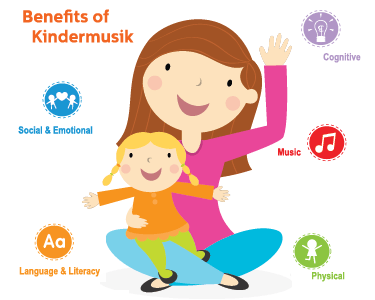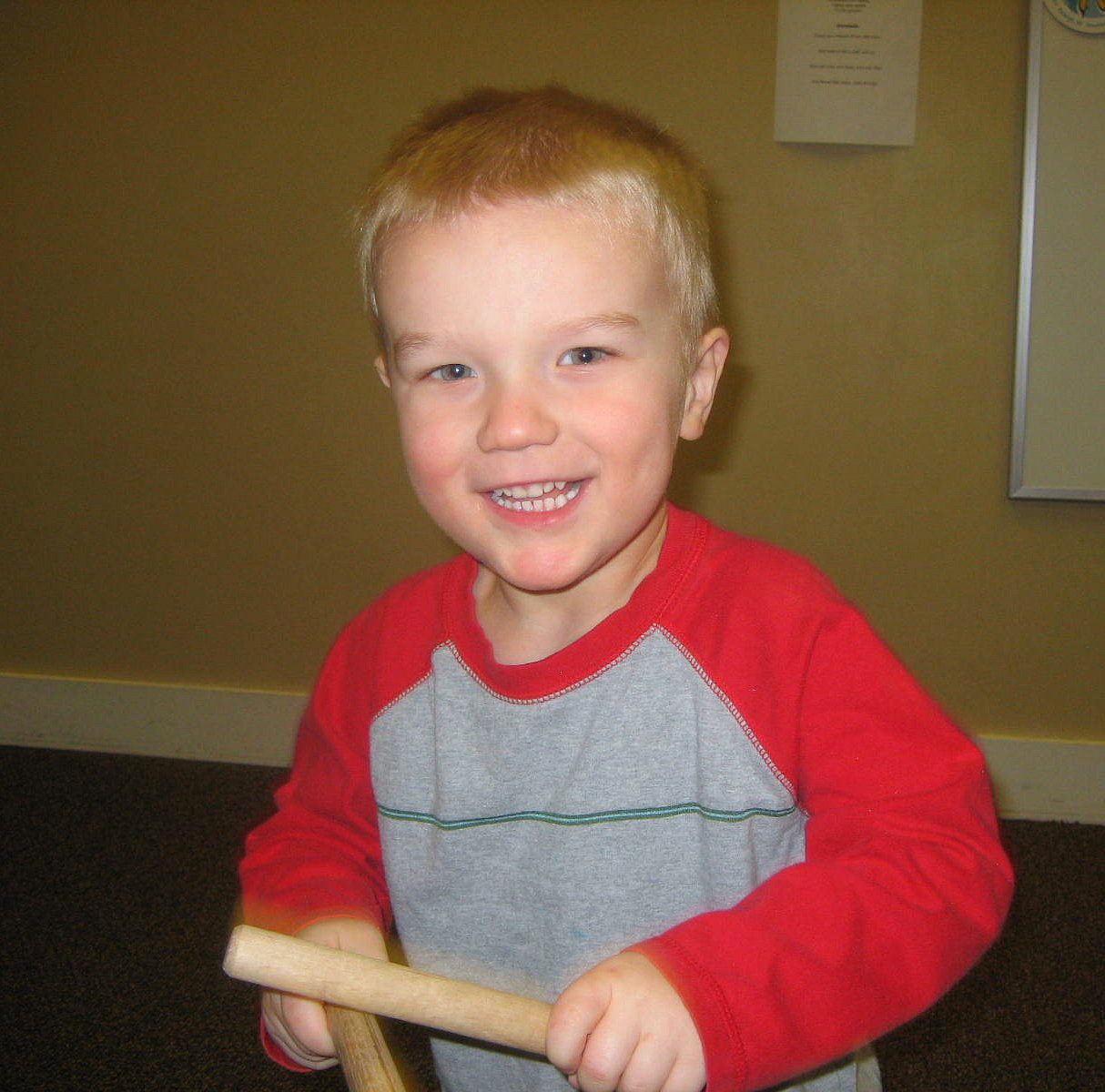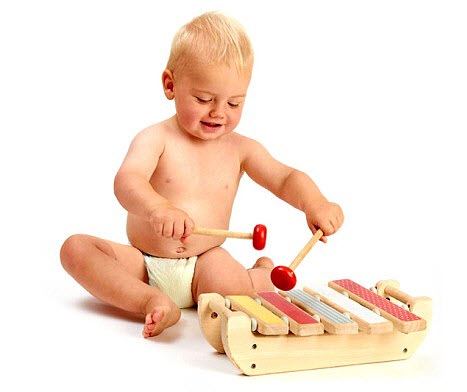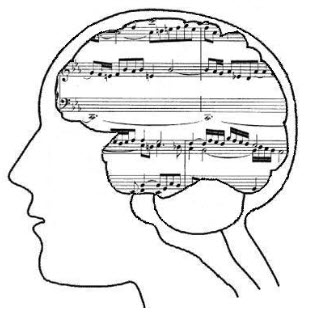Kindermusik is dedicated to bringing you and your child a variety of music. See how this type of exposure to musical learning expands your child’s development of 4 essential, surprisingly, non-musical skills.

Greater language proficiency
Just as you read a variety of books to expand your child’s vocabulary, exposure to a wide variety of music and sounds expands your child’s “ear vocabulary.” High quality musical recordings and real instruments help your child “fine tune” her ear to recognize and imitate the sounds that make up words and language.
Spatial awareness
When a child listens to music, her mind perceives the sound in multi-dimensional ways. The sound is loud or soft, fast or slow, it moves up and down, or left to right. Eventually, she’ll use that “awareness of space” to work with her body when she walks through the living room and tries not to hit the coffee table. Much later, this same awareness is necessary skill for learning how to get around things, jump, run, and move in zig-zag ways.
Temporal reasoning
You hear this skill in action when a preschooler tells a story. He starts with his own experience and then moves to some imagined place with a princess or a superhero then goes back to something real again. Music does the same thing. It goes back and forth between established places (the chorus) and to new places that take you somewhere else (the verse). The ability to go back and forth from something established to something imagined comes from temporal reasoning, a skill used in music writing, storytelling, and problem solving.
Emotional intelligence
With exposure to a greater variety of musical styles—like jazz, folk, or classical, this increased exposure to music increases a child’s awareness and understanding of different moods and emotions.
So there you have it – at least four reasons why we make the claim that Kindermusik is so much more than just music. But we’ll not only help your child become a better learner, we’ll also deliver a classroom experience that inspires a lifelong love for music and gives you tips, ideas, and tools like Kindermusik@Home, resources for parents and educational activities for kids with music downloads that make great parenting just a little bit easier.
Edited and revised by Theresa Case, whose Kindermusik program at Piano Central Studios in Greenville, SC, is proudly among the top 1% of Kindermusik programs worldwide.


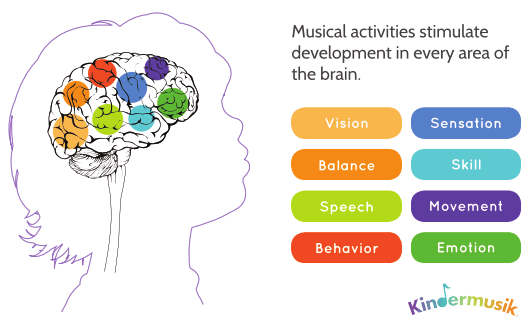
 Music changes us. Of course, we know that music can move us to tears, conjure up (and make) memories, or even quiet a child’s cries. However, music also literally changes our brains!
Music changes us. Of course, we know that music can move us to tears, conjure up (and make) memories, or even quiet a child’s cries. However, music also literally changes our brains!

 Recent research
Recent research Need some inspiration for talking or singing to your baby? Enroll in a Kindermusik! You’ll receive tips and ideas in class and interactive Home Materials to help the music, learning, and fun last through the week at home. It’s easy to get started with a
Need some inspiration for talking or singing to your baby? Enroll in a Kindermusik! You’ll receive tips and ideas in class and interactive Home Materials to help the music, learning, and fun last through the week at home. It’s easy to get started with a 